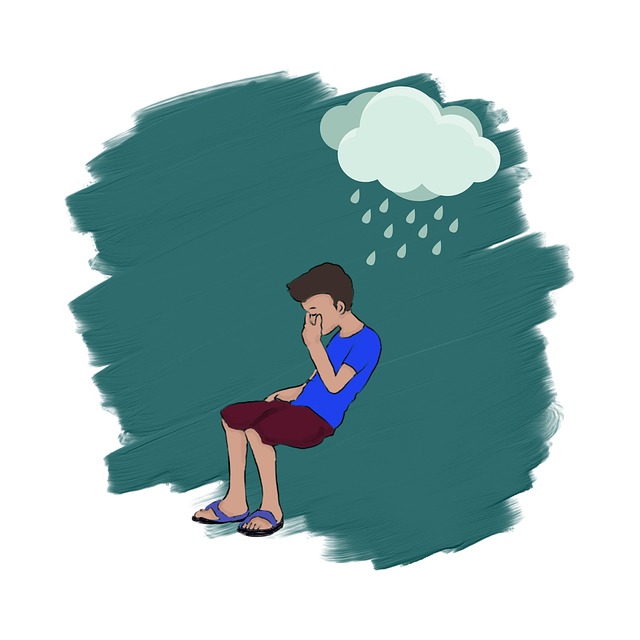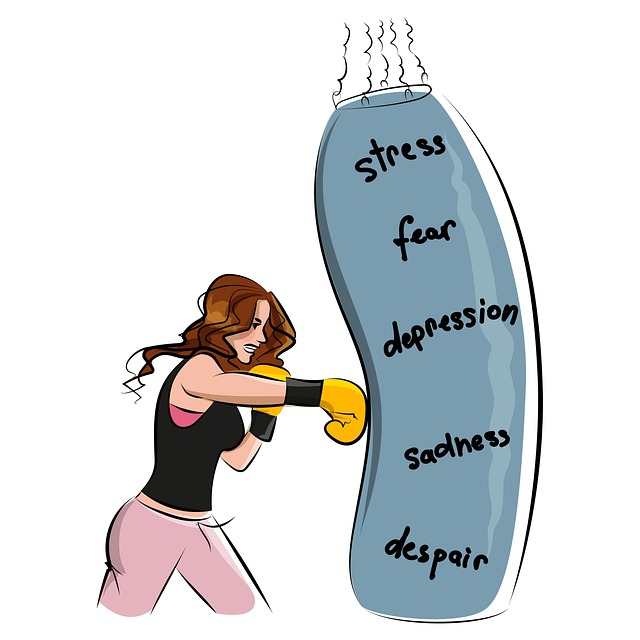Englewood Adolescent and Teen Therapy leverages group facilitation for mental wellness, creating a supportive environment where teens connect with peers through structured discussions, activities, and exercises. Facilitators guide participants to explore emotions, build resilience, and learn coping strategies, enhancing self-esteem and fostering healthy self-care routines. The therapy combines Compassion Cultivation Practices and Emotional Well-being Promotion Techniques, emphasizing structured yet empathetic sessions. Success is measured through positive changes in emotional regulation, stress management, and social support networks, with tailored interventions based on feedback. Stigma reduction efforts create a judgment-free zone, promoting open communication and mindfulness to prevent burnout and build resilience.
Mental wellness group facilitation plays a pivotal role in adolescent therapy, offering a supportive environment for teens to connect, heal, and grow. This article explores the art of group facilitation techniques tailored for Englewood’s adolescents, delving into strategies that foster open communication and promote mental health growth. We’ll uncover best practices for running effective sessions, measuring progress, and nurturing resilience, all within the context of specialized teen therapy services.
- Understanding the Role of Group Facilitation in Teen Therapy
- Effective Techniques for Running Supportive Group Sessions
- Measuring Success and Promoting Growth in Adolescent Mental Health Groups
Understanding the Role of Group Facilitation in Teen Therapy

Englewood Adolescent and Teen Therapy leverages group facilitation as a powerful tool to foster mental wellness among teens. This collaborative approach goes beyond individual therapy, creating a supportive environment where adolescents can connect with peers facing similar challenges. Through structured discussions, activities, and exercises, facilitators guide participants to explore their emotions, build resilience, and develop coping strategies.
Group sessions enable teens to learn from one another, enhancing self-esteem improvement and fostering a sense of belonging. They also encourage the adoption of healthy self-care routine development for better mental health and effective stress management techniques. This collective experience empowers adolescents with valuable social skills, provides alternative perspectives on their struggles, and equips them with lasting strategies to navigate life’s challenges.
Effective Techniques for Running Supportive Group Sessions

Running supportive group sessions requires a blend of structured activities and empathetic facilitation. At Englewood Adolescent and Teen Therapy, we’ve found that combining Compassion Cultivation Practices with Emotional Well-being Promotion Techniques creates a safe and encouraging environment for participants. The facilitator should begin by setting clear goals for each session, ensuring everyone understands the agenda and expected outcomes. This structure provides a sense of security, allowing individuals to open up about their experiences without fear of judgment.
During the session, active listening is key. Facilitators should encourage open dialogue, validate every participant’s feelings, and reflect on shared experiences. Incorporating interactive exercises like role-playing scenarios or guided meditations can also foster connection and understanding among group members. Through these activities, participants learn valuable coping strategies and build a sense of community, ultimately enhancing their Healthcare Provider Cultural Competency Training by promoting a supportive network for mental wellness.
Measuring Success and Promoting Growth in Adolescent Mental Health Groups

Measuring success in adolescent mental health groups is a multifaceted process that goes beyond mere attendance or completion of sessions. Effective facilitation techniques should aim to foster significant, positive changes in participants’ mental wellness. This can be achieved by assessing improvements in areas like emotional regulation skills, stress management, and social support networks. Utilizing standardized questionnaires and qualitative feedback forms allows therapists at Englewood Adolescent and Teen Therapy to track progress over time, identify emerging challenges, and tailor interventions accordingly.
Promoting growth within these groups involves creating a safe, inclusive environment that encourages open communication and peer-to-peer learning. Incorporating evidence-based practices such as mindfulness meditation can help reduce burnout prevention among adolescents while fostering self-awareness and emotional resilience. By integrating mental illness stigma reduction efforts into group discussions, facilitators can create a supportive space where participants feel empowered to share their experiences without fear of judgment, further enhancing the overall therapeutic impact.
Group facilitation plays a pivotal role in adolescent mental health support, as evidenced by effective practices employed at Englewood Adolescent and Teen Therapy. By implementing proven techniques discussed in this article—from fostering an inclusive environment to measuring growth—therapists can create a safe space for teens to connect, heal, and thrive. These strategies not only enhance individual well-being but also contribute to a broader community of support, ultimately revolutionizing the approach to teen therapy.














